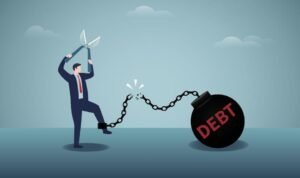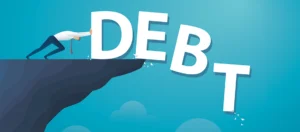In today’s dynamic financial landscape, personal debt has become an increasingly common issue for individuals across Indonesia. Whether it’s unpaid loans, credit card balances, or informal borrowings, managing and recovering personal debts can be a complex and sensitive process. Engaging professional debt collection services can provide an effective solution to navigate these challenges.
Understanding Personal Debt Collection
Personal debt collection involves the process of recovering funds owed by individuals. Unlike commercial debt, which pertains to businesses, personal debt deals with individual borrowers. The reasons for unpaid debts can vary, including financial hardship, oversight, or disputes over the amount owed.
Professional debt collection agencies specialize in handling these situations with tact and efficiency. They employ strategies that comply with legal standards while maintaining respect for all parties involved.
The Importance of Professional Services
Attempting to recover debts independently can be time-consuming and emotionally taxing. Professional debt collectors bring expertise and resources that increase the likelihood of successful recovery. They understand the legal framework governing debt collection in Indonesia and are equipped to handle various scenarios that may arise during the process.
By outsourcing debt collection, individuals can focus on their personal and professional lives, leaving the recovery process in capable hands.
Legal Framework in Indonesia
Debt collection in Indonesia is governed by a set of laws and regulations designed to protect both creditors and debtors. The Indonesian Civil Code outlines the general principles of obligations and contracts, which form the basis for debt collection activities.
Additionally, the Financial Services Authority (Otoritas Jasa Keuangan or OJK) oversees financial institutions and ensures that debt collection practices adhere to ethical standards. It’s crucial for debt collection agencies to operate within this legal framework to avoid potential legal repercussions.
Choosing the Right Debt Collection Agency
Selecting a reputable debt collection agency is vital to ensure effective and ethical recovery of debts. Factors to consider include the agency’s experience, success rate, and adherence to legal standards. A professional agency will provide transparent communication, regular updates, and a clear outline of their processes.
Master Debt Collector is a trusted agency in Indonesia, offering comprehensive personal debt collection services. Their team of experts is well-versed in local laws and committed to providing respectful and efficient debt recovery solutions.
The Debt Collection Process
The process of personal debt collection typically involves several steps:
Initial Assessment: The agency reviews the details of the debt, including the amount owed, the debtor’s information, and any relevant documentation.
Debtor Contact: The agency reaches out to the debtor through various communication channels to inform them of the outstanding debt and discuss repayment options.
Negotiation: If the debtor is willing to cooperate, the agency negotiates a repayment plan that suits both parties.
Legal Action: If the debtor refuses to pay or cannot be contacted, the agency may recommend legal proceedings to recover the debt.
Throughout this process, it’s essential for the agency to maintain professionalism and comply with all legal requirements.
Benefits of Professional Debt Collection
Engaging a professional debt collection agency offers several advantages:
Expertise: Agencies have the knowledge and experience to handle various debt scenarios effectively.
Efficiency: With established processes and resources, agencies can often recover debts more quickly than individuals acting alone.
Legal Compliance: Professional agencies ensure that all actions taken are within the bounds of the law, protecting clients from potential legal issues.
Stress Reduction: By handling the recovery process, agencies alleviate the emotional burden on creditors.
Ethical Considerations
Ethical practices are paramount in debt collection. Agencies must treat debtors with respect and avoid aggressive or harassing tactics. Maintaining dignity and fairness not only complies with legal standards but also preserves the reputation of the creditor.
Master Debt Collector emphasizes ethical practices, ensuring that all interactions are conducted with professionalism and empathy.
Challenges in Personal Debt Collection
Recovering personal debts can present several challenges:
Debtor Evasion: Some debtors may avoid contact or provide false information, making it difficult to initiate the recovery process.
Disputes: Disagreements over the amount owed or the terms of repayment can complicate the process.
Legal Complexities: Navigating the legal system requires expertise to ensure compliance and avoid potential pitfalls.
Professional agencies are equipped to handle these challenges, employing strategies to overcome obstacles and achieve successful outcomes.
Preventative Measures
To minimize the risk of unpaid debts, individuals can take several preventative steps:
Clear Agreements: Ensure that all loan terms are documented and agreed upon in writing.
Regular Communication: Maintain open lines of communication with borrowers to address any issues promptly.
Credit Assessments: Evaluate the borrower’s financial stability before extending credit.
Implementing these measures can reduce the likelihood of default and facilitate smoother debt recovery if necessary.
Conclusion
Personal debt collection in Indonesia requires a careful balance of legal knowledge, ethical practices, and effective communication. Engaging a professional agency like Master Debt Collector can provide the expertise and support needed to navigate this complex process. By understanding the intricacies of debt collection and choosing the right partners, individuals can recover debts efficiently while maintaining their integrity and peace of mind.








